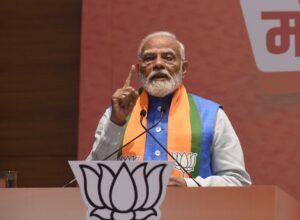Pakistan slams Indian defense minister’s provocative statement on Kashmir
ISLAMABAD (AA) – Pakistan has condemned the Indian defense minister’s statement on Pakistan-administered (Azad) Kashmir, calling it “provocative” and “completely unacceptable.”
In a statement late Sunday, the Foreign Ministry rejected Rajnath Singh’s “unwarranted and totally unacceptable comments” made at an event in the Indian-occupied part of the disputed valley, in which he had said that Pakistan-administered Kashmir was a part of India.
“The minister in his remarks distorted the well-established historical facts about the Jammu & Kashmir dispute, leveled baseless allegations and hurled threats against Pakistan,” said the ministry.
“PoK (Pakistan Occupied Kashmir) is part of India, we believe it. A unanimous resolution has also been passed in this regard in the Parliament,” Singh later tweeted.
“Provocative statements by Indian political figures cannot alter the reality of IIOJK (Indian Illegally Occupied Jammu & Kashmir),” the Pakistani ministry said in response.
According to The Indian Express daily, Singh alleged during his two-day visit to the valley, that Pakistan, “has always resorted to anti-India activities and that Jammu and Kashmir had also witnessed terror activities in the past.”
“Due to the relentless efforts of the personnel” of the armed and security forces, he said, “there has been a significant decline in the number of terror activities in the state recently,” it added.
Though “Pakistan continuously tries to disturb peace in the country through its approach of bleeding India with a thousand cuts,” he said, India’s “security forces are such a protective shield for this country that whoever tries to break it bleeds himself,” the daily quoted him.
Pakistan’s Foreign Ministry statement warned that while Islamabad supports regional peace and stability, it is fully capable of thwarting any aggressive plans. “We have demonstrated our resolve and capability in this regard on numerous occasions, including in the recent past,” the statement said.
The ministry reiterated that Jammu and Kashmir is an internationally recognized dispute still on the UN agenda and that the solution lies in implementing relevant UN Security Council resolutions.
“India would be well advised to introspect as to why, despite imposing draconian laws, holding the entire Valley under military siege for decades, imprisoning thousands of innocent Kashmiris and their true representatives and wanton killing of over 100,000 Kashmiris, India has not been able to smother the flame of freedom from the heart of Kashmiris,” the ministry said.
Pakistan also urged the international community to take concrete steps to prevent India from continuing its “brutal treatment” of the Kashmiri people, and “illegal attempts” to change the demographic structure of Kashmir.
Disputed territory
Jammu and Kashmir, a Muslim majority state under the rule of a Hindu dynasty before India’s partition, has been a bone of contention between Pakistan and India since 1947, following the end of British colonial rule in the subcontinent. The British left the region without judiciously settling the fate of the Muslim state according to the aspirations of its Muslim residents. When the Hindu ruler accepted to India, a Muslim insurgency developed in the region against the decision, supported by Pakistan. A war between the two newly independent states over Kashmir took place in 1948. The UN-brokered ceasefire divided the region between the two countries across what is called the Line of Control. The UN called for a referendum to decide the future of Kashmir, which has been denied by India.
Kashmir today is still held in part by the two nuclear rivals and claimed by both in full. A small sliver of Kashmir is also held by China. However, in 2019, India forcibly integrated the region into its own territory, scrapping the valley’s special status given to it in 1948 by the UN.
Since they were partitioned in 1947, Pakistan and India have fought three wars — in 1948, 1965, and 1971 — and two of them were over Kashmir.
Many Kashmiri groups in Jammu and Kashmir have been fighting against Indian rule for unification with neighboring Pakistan, or independence from Indian occupation.












